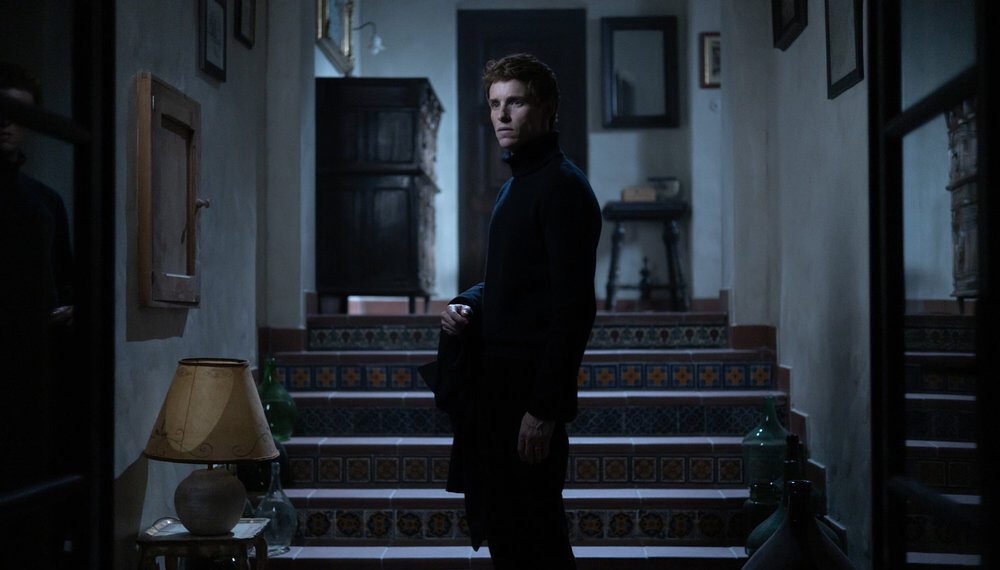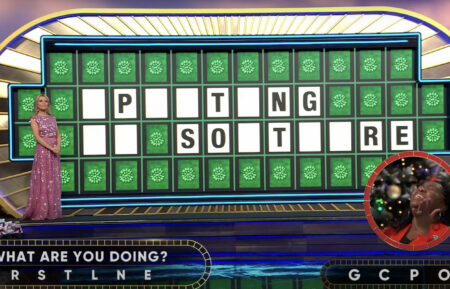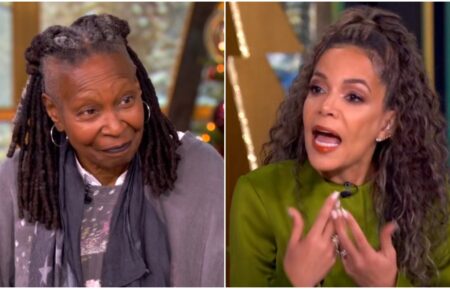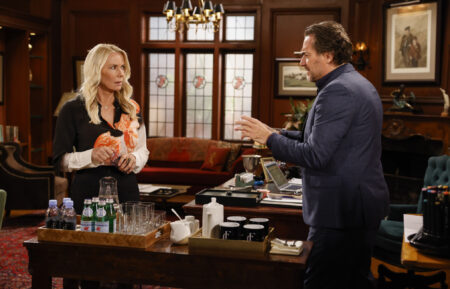‘The Day of the Jackal’ Bosses Talk About Flipping That Ending & Potential Season 2 Plans
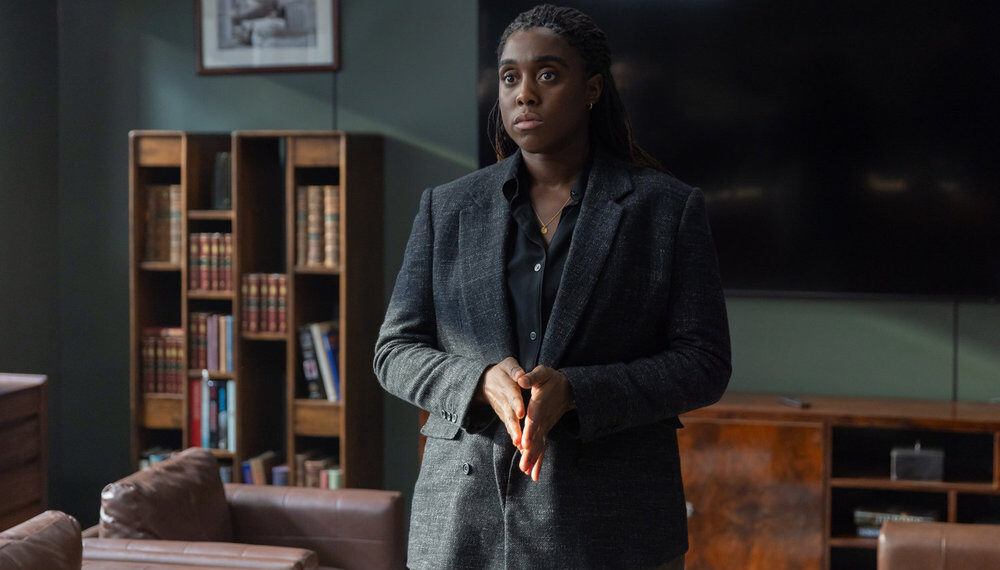
Q&A
The Day of the Jackal adapts a half-century-old book that’s already been translated to screen before, but still, the series is full of surprises — particularly in the way the first season concludes. Not only does the Jackal (Eddie Redmayne) survive, but he also gets his mark, neither of which happened in Frederick Forsyth’s novel or the film adaptation. He also dispenses with the woman who’s been on his tail all series long, Bianca (Lashana Lynch), in a stunningly succinct fashion and is only stopped from chasing down his wife by a sudden car crash.
It’s fitting that a series-length take on the story would charter a new course for the story, especially since the show is renewed for Season 2. So how did the creatives come up with these changes? And what’s ahead for the already-celebrated Peacock drama?
TV Insider spoke to executive producers Gareth Naeme and Nigel Marchant to find out the answers to those questions and more. (Also be sure to check out our interview with Eddie Redmayne about his work both on- and off-screen for the series.)
This is the first adaptation of this story where he gets the mark. Can you talk about making that decision?
Gareth Naeme: Well, I think what we have done is taken the inspiration from the original but not done the same thing. We’ve taken various things. In the book and the movie, there’s a woman involved that he has to kill. Well, we’ve obviously changed the gender there. That just feels more contemporary and more different. And so the ending, we flip that so that it’s not quite what people would expect, and also so that it is serious television, so it plays to the longevity of it. We didn’t take anything as read in the original and thought, “We’re gonna do that.” We very often just did quite the opposite of it or the reverse of it while keeping, I hope, true to the tone and the overall kind of sense of the strangeness of this job or this life experience. Yeah, I guess we probably always planned to end it this way. But we’ve kept fairly quiet about it until now because we didn’t want to spoil anything.
On the other hand, Bianca loses, and that was also a surprise. Did she know when she left her family that she was not coming back?
Nigel Marchant: I don’t think she did. No, I think she went out there with the moral purpose of bringing him back, and clearly, she had started to smell a rat and that he was her key to uncovering much more of the wrecking crew and the mole within MI6. So, yeah, I think her absolute aim was to go there, get him, and bring him back, and find out that information to uncover who was behind all of this, who was behind the killing of UDC, who’d employed the Jackal. And I think that was her pure motivation.
Naeme: And I don’t think she had any sense that the powers that be, the authorities found it convenient if she didn’t come back. I don’t think she would have [known] because I don’t think she was reckless.
Did Teddy set up UDC when he told him to go swimming?
Naeme: I would say that we are — and that’s very intuitive of you — somewhat silent about that. I guess we could say, “I think you could read that into it,” but it isn’t really an avenue we go down. So well spotted, and perhaps or perhaps not.
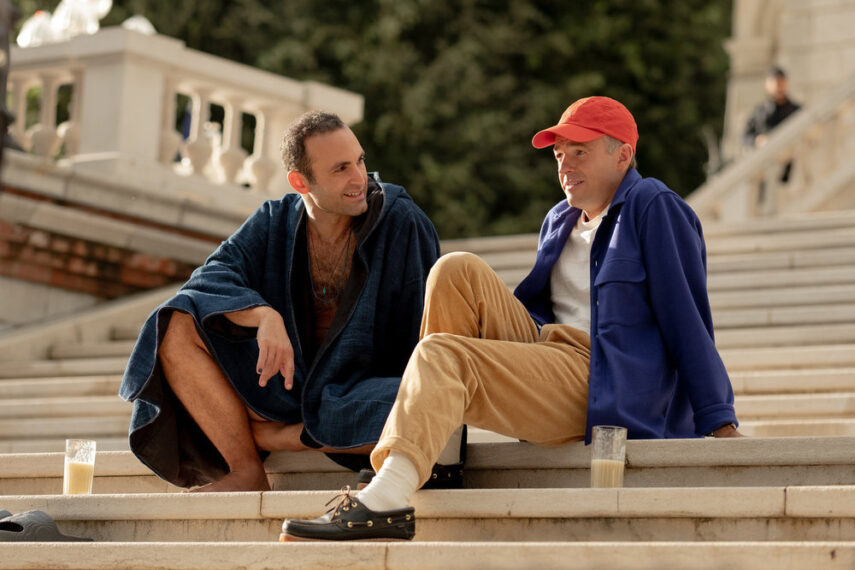
Marcell Piti / Carnival Film & Television
If Nuria had decided to turn on the Jackal during their in-person conversation, and it didn’t go the way it did, would he have killed her?
Marchant: It’s interesting. It’s a good question. And I think we wanted at points at the beginning to [wonder], is she a good cover for him or does he really love her, and for an audience to ask that question. And I think as we go through the series, we realize actually he really does love her and he needs that family and wants to be part of it. So whether he could pull the trigger right at the very end, who knows?
Did he know that he was gonna kill Trevor and Liz? It seemed like he really struggled with that.
Naeme: No, and that’s why he breaks down because he says at one point, “You remind me of my parents,” and that’s somewhere we might go with the second season, perhaps. The idea we don’t really know much. We know kind of the way he started in the military. We know a little bit about his backstory of how he got into the army, and he fabricated his background and where he came from. But I think he related to them. He knew they were two innocent people. He had no intention of killing them at all. And when, unfortunately, events lead to that, that is why I think you see him at his lowest ebb of all. He could even kill Rasmus in cold [blood]. He didn’t want to do it. There’s that lovely moment where he stops and thinks, “Oh, don’t. Don’t come running after me. I know you’re gonna have to die if this happens.” And he doesn’t want it to happen.
But it’s even more so with Trevor and Liz, and he breaks down because I think he realizes he’s a meticulous person that plans and prepares everything, so it doesn’t fit for him to work in this way, but also he’s no better than the other men that he was in the military with, who carried out that war crime. And he wouldn’t tolerate that. It lowers him to their level and that, he hates.
What was the straw that broke the camel’s back with Nuria? Was it finding out what happened with the fisherman in the papers or finding out that she wasn’t safe?
Marchant: I would go with she wasn’t safe. Obviously, as we go through the show, she finds out more and more of the lies and peels at the different skins of the onion to get to the truth. But I think it’s that moment where he had always promised her she would be safe, that they would never be found, at that moment where she knows he is lying, and he needs to go away on holiday to hide that she fears for her own child’s safety. And I think that’s when she knows she’s gotta get away.
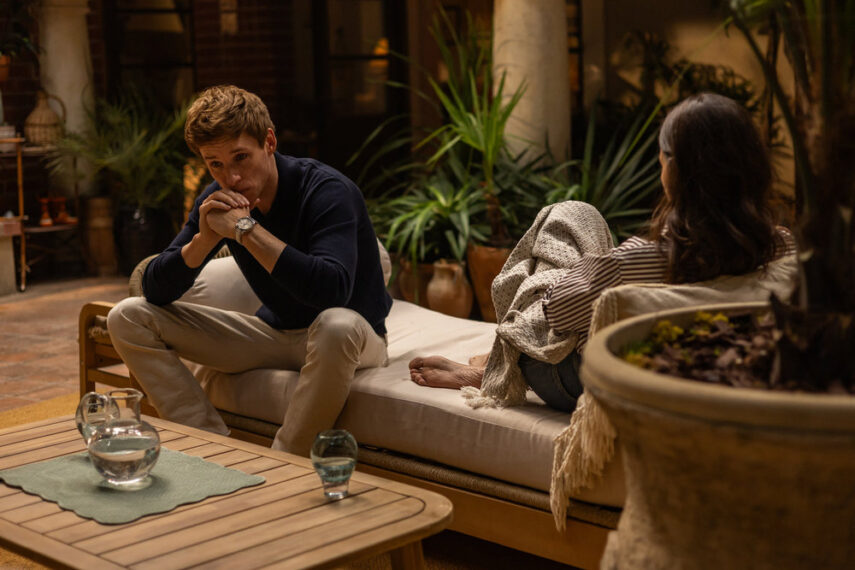
Marcell PIti / Carnival Film & Television
You already said that Bianca didn’t suspect that she was in danger from her employers, but did Jackal have any idea that Winthrop would come after him?
Naeme: I think it doesn’t surprise him when the chips are down, I think that ultimately doesn’t. He knows the world that he lives in. He was expecting to carry out the mission and get paid because that’s usually what’s happened. And he’s also been pretty effective at bumping off anyone who doesn’t settle their debts. We see that right at the beginning. But I think it’s all part and parcel of it, the situation getting out of control.
I wanted to talk about just that shot of Bianca and him through the two-way mirror. Can you talk about just forming that shot? It was really cool.
Marchant: That was our director who came up with that on the last block, Anu [Menon]. We’ve been waiting for this moment for nine or 10 hours, of them to come face to face, and it was such a brilliant way of doing it. That’s kind of two sides of the same coin, isn’t it?
The ending leaves a bit of an open ending. Do you have hopes for what we’ll see in Season 2?
Well, yeah, there’s various hooks there. We’ve been tracking how the show’s run and what people enjoy, and I think the premise of the assassin, how he works, who he works for, who employs his services, how he carries out his missions, people seem to be very drawn to that, and I guess we’ll continue in that vein. But yeah, we’ve set various hairs running, as Nigel says, for a second season.
One of those openings is he wants to go see someone before he settles his debts. I’m sure you can’t tell me who he wants to see, but my guess would be Nuria. Does he really believe that he deserves a normal happy family life?
Naeme: I think that’s another very good question. I think at the beginning of the series, he does. He’s clearly, we discover, somebody who’s suffered, probably quite profoundly from combat stress disorder, and that’s affected a lot of these decisions. And I think he is one of those people who, as people who have that kind of mental injury like that, is able to compartmentalize his life. Some people can do that.
I mean, another way of looking at it would be say for somebody who was a bigamist who had two marriages running at the same time in different cities or something, he’s completely able to compartmentalize himself. And because he’s so taciturn and transactional and cool and all of these things, he thinks it works. He’s like a man who works on the oil rigs. He’s away for half the year, and when he comes back home, he has six weeks of normality. But the armorer tells him that he learned a long time ago, that’s not a lifestyle that we can have in this business. And I think this is dawning on him as the story progresses. So the whole thing is really, can he — I would imagine, let’s see where we go [in Season 2] — can he get her back? Can he build a normal life? But at the same time, can he let go of this addiction he has? So all of those things are quite fascinating.
It’s a job that none of us have. I think when we watch this thing, that’s what’s quite intriguing about it, that it’s a kind of dynamic of your life that, thank heavens, practically no one has ever set up and so therefore, it’s a kind of unique character that intrigues us.
The Day of the Jackal, Streaming Now, Peacock

